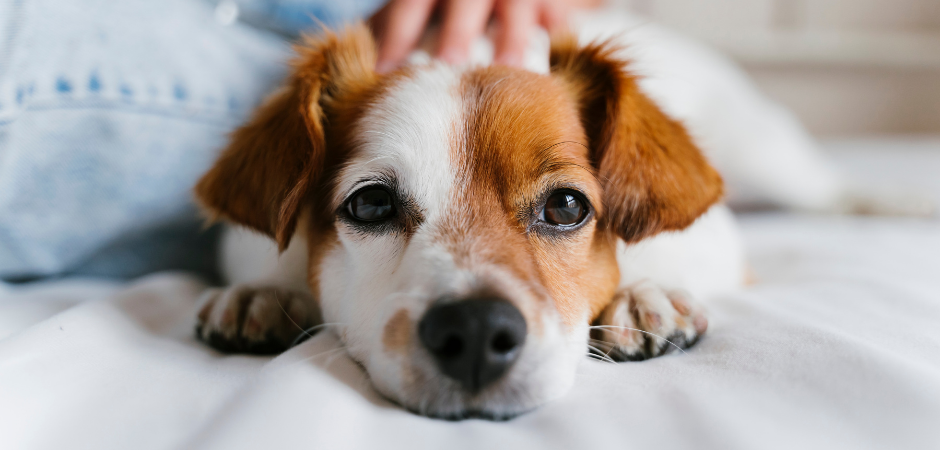
Living with pets when living with cancer
For many people, pets feel like a part of the family. After a cancer diagnosis, pets can offer many benefits.
Some hospitals and treatment centres even use animal therapy to help improve patients’ well-being. Don’t be surprised if you get a visit from a specially trained therapy dog during a chemo infusion.
Benefits of having a pet: companionship, improved mood, and motivation to stay active
There are some things you need to keep in mind when it comes to pets during cancer treatment. Talk to your healthcare team about your treatment plan and your pets. Some cancer treatments can weaken your immune system, so you may need to take special precautions as being around animals may increase your risk of infection.
Caring for yourself when you have pets
While going through cancer treatment, it’s best to follow some basic guidelines:
- If you live with family or a friend, ask someone else to clean up after pets such as cleaning the litter box or picking up dog poo
- If you need to clean up after a pet, wear gloves and wash your hands well after the clean-up
- If you are cleaning a litter box or bird cage, wear a mask to avoid inhaling the dust.
- Keep litter boxes, bird cages & aquariums away from the kitchen and dining room
- If your pet is sick—vomiting, diarrhea, or sneezing—take your pet to the vet asap. Your pet may have an infection that could be passed on to you if your immune system is weak
- Avoid scratches & bites. Keep your dog’s or cat’s nails trimmed to minimize the risk of scratches. Even playful bites can become infected. If you do get scratched or bitten, clean it well and cover with a band-aid. If it becomes red, warm, swollen, or oozes pus, let your healthcare team know as it may be infected
- Keep your pet away from your face. As dogs and cats can transmit diseases, you don’t want them licking your mouth or nose. If this happens, wash your mouth & nose with water
- Keep your pets up-to-date on vaccines, heartworm prevention, and flea and tick medications to reduce your exposure to infection as well as for their own protection
- Try & avoid adopting new pets or taking in strays during cancer treatment. Strays are more likely to carry unknown germs and not be up-to-date on vaccines (even if the animal appears healthy). Also, new pets take a lot of time and energy which you may not have to give during cancer treatment.
- Some pets and animals do need to be avoided during cancer treatment when your immune system is weakened. Reptiles, chickens, ducks, and rodents can carry salmonella and other germs that may cause infection. Salmonella can lead to severe diarrhea, and it can be especially dangerous for cancer patients
- Find a good pet sitter. If you must spend time at the hospital for surgery or treatment, make sure you have a reliable pet sitter lined up to take care of your pet while you’re healing
- Wash your hand regularly if you have a pet
As long as you talk to your healthcare team and take the appropriate measures to reduce your risk of infection, your furry friends can stay by your side during cancer treatment!
More reading:
https://www.cancer.org/treatment/treatments-and-side-effects/physical-side-effects/low-blood-counts/infections/safety.html
https://www.cancercenter.com/community/blog/2021/12/pets-for-cancer-patients
https://www.verywellhealth.com/can-i-keep-my-pets-if-i-have-cancer-513978
Caring for your pets when you have cancer
Going through treatment for cancer is a very difficult and challenging time in your life. The company of pets can help ease the burden and be a source of support. Caring for a pet can also help you stay disciplined and encourage you to go outside for exercise and fresh air.
Take steps to ensure your pet stays healthy and happy so it can be a calming companion throughout your cancer experience.
There are some things you need to keep in mind when it comes to pets during cancer treatment. Some ways to keep them safe when you are going through cancer treatment can include the following
- Start from a healthy place. Have a Vet examine your pet to make sure it’s healthy and up-to-date on its heartworm and intestinal parasite preventatives and that it is protected against fleas and ticks
- Keep your dog active. When dogs don’t get enough activity, they may start to act out or misbehave. Make sure your dog gets plenty of exercise, including extra walks if possible. Have a friend, neighbour or dog walker help you as needed
- Stick to a routine. Dogs are creatures of habit, so try not to alter their routine too much. They are happiest—and most able to deal with new things—when their routine is stable
- Make sure your medications are completely inaccessible to your pets. If you are using any type of medicinal cream, don’t let your dog or cat brush up against or lick the area where it is applied
- Close your toilet lids. Drugs dangerous to dogs and cats may be excreted in your urine and traces may remain in the toilet bowl even after you flush
- Bath your dog regularly. This is a perfect task to delegate to a friend or family member. Regular baths help keep your pet healthy and provide it with personal attention and affection
- To be on the safe side, it’s best to avoid your pet for several hours after a PET scan. The radioactive dye used in PET scans can be harmful to your pet
Pets can be a great source of emotional comfort for people undergoing treatment for cancer. In addition to the simple joy their presence brings, studies have shown that petting dogs and cats releases “feel good” hormones in human.
More reading:
https://www.cancercare.org/publications/390-caring_for_your_pets_when_you_have_cancer#!keeping-your-pets-healthy
Read more . . .






